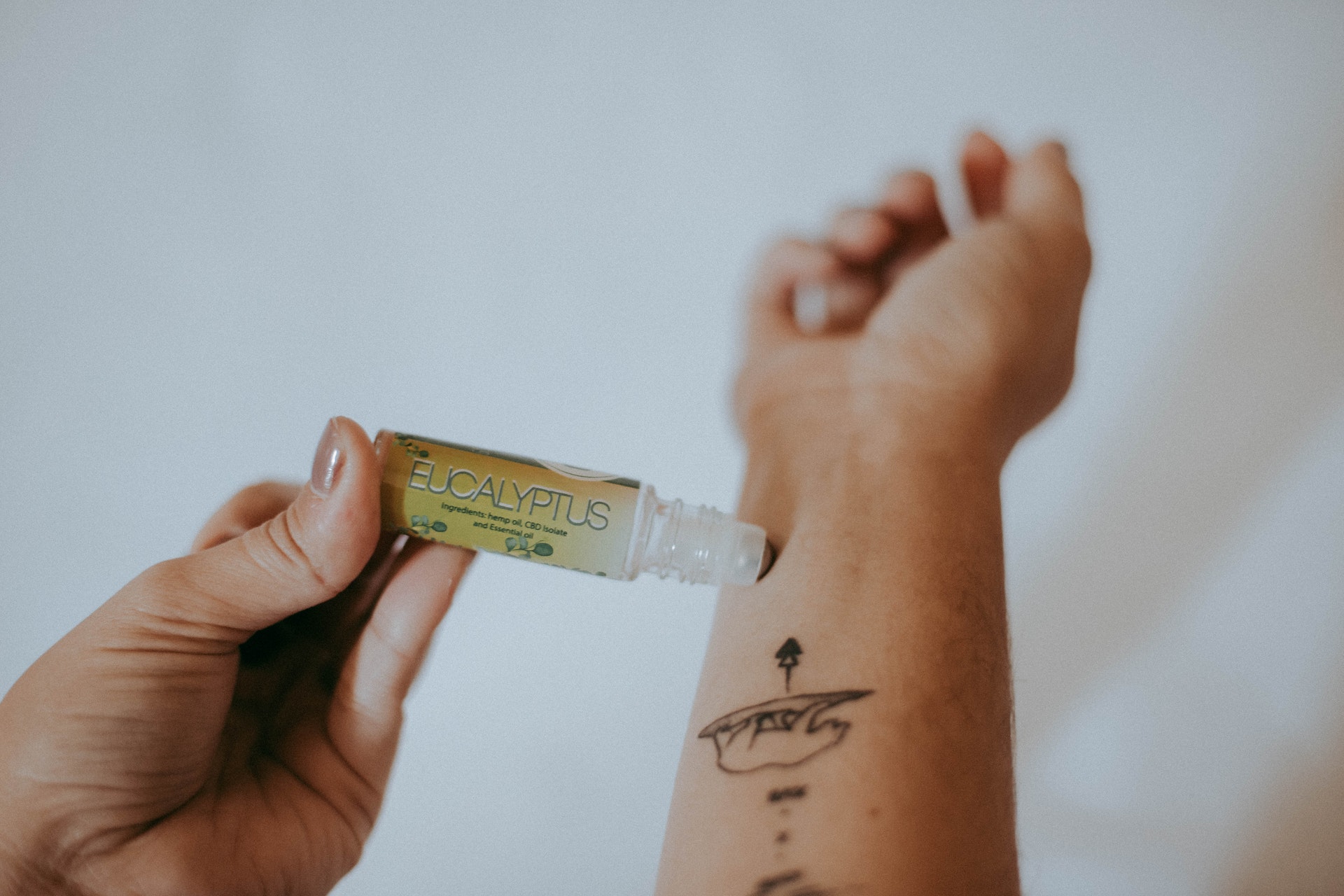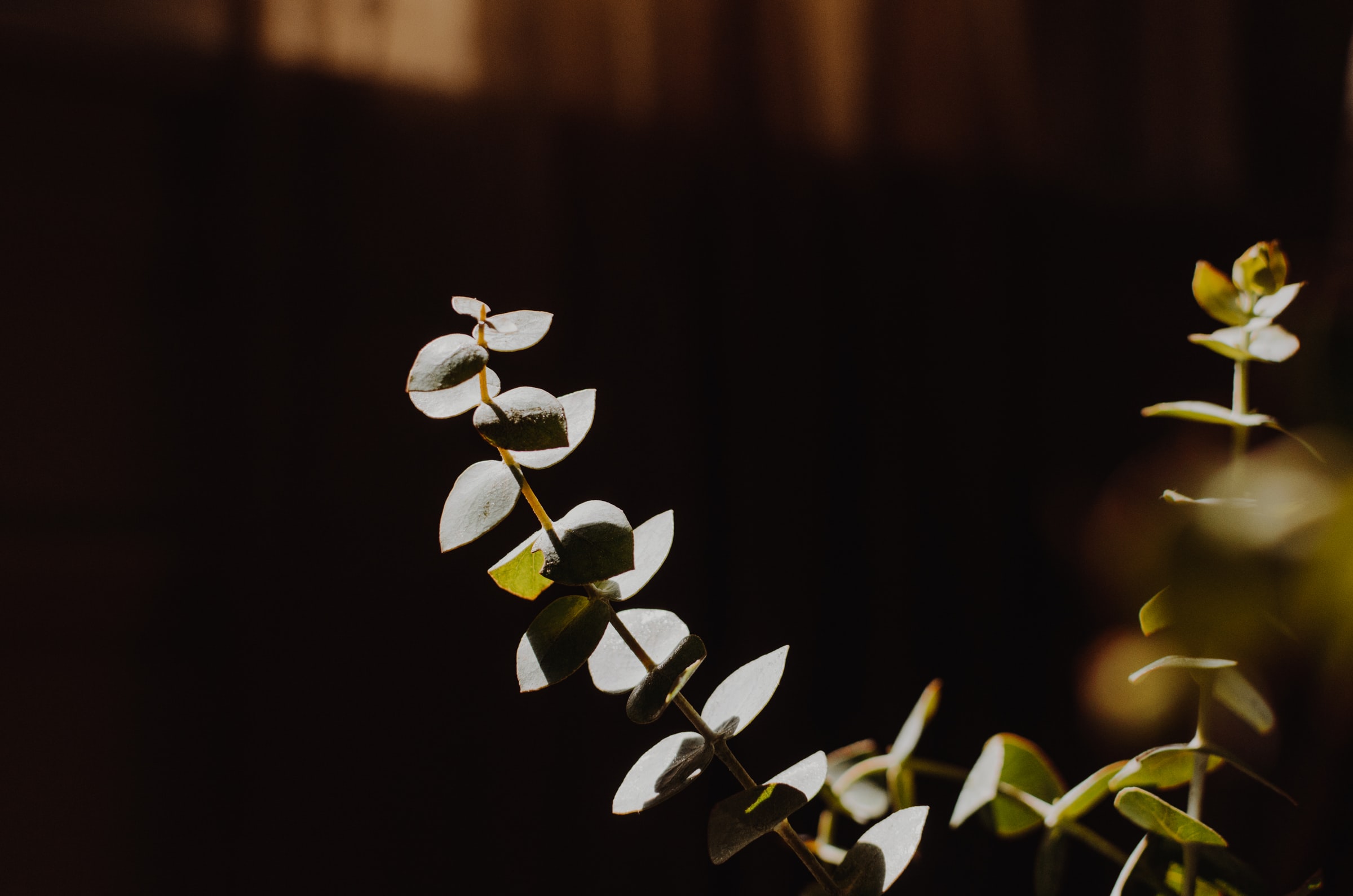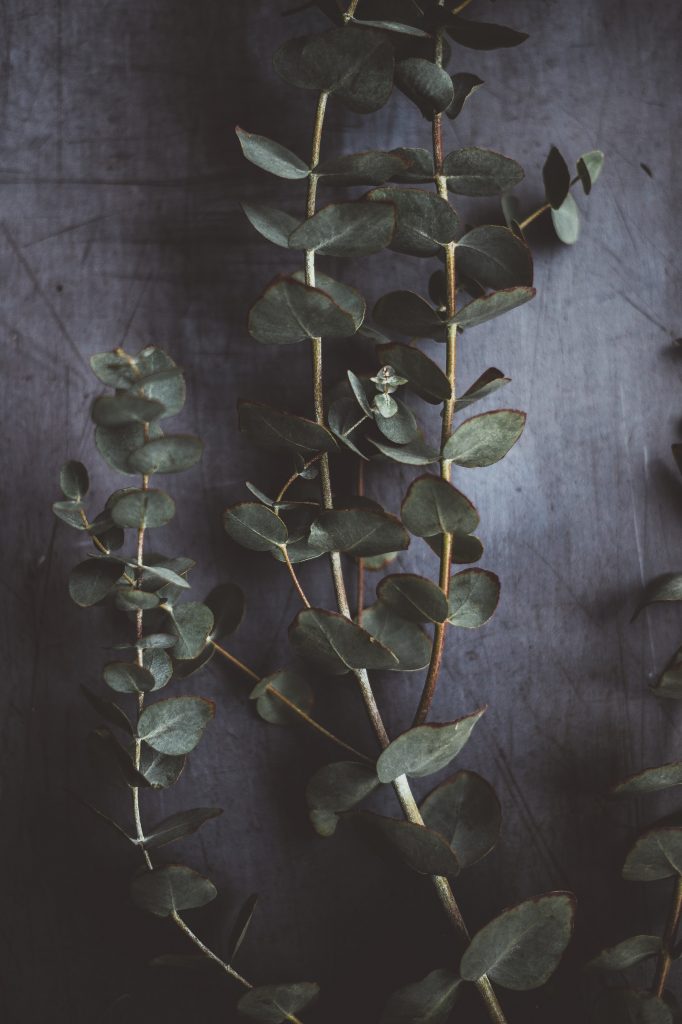[lwptoc skipHeadingLevel=”h1,h4,h5,h6″]
Many easily and readily recognize the scent of eucalyptus. Some describe this minty aroma as a relaxing forest scent with hints of honey.
If this refreshing and menthol-like fragrance is something that you want in your house, you can grow a eucalyptus plant in your home.
What is a Eucalyptus Plant?

Eucalyptus (scientific name Eucalyptus globules) is an evergreen tree with more than 700 species. The name comes from two Greek words: “Eu,” which means well, and “Calyptop,” which translates to cover. Other names for this evergreen plant include the stringybark tree and the gum tree.
The eucalyptus plant is a member of the myrtle family, also known as Myrtaceae. This means that the tree shares ancestry with the bay rum, allspice, clove and guava tree.
The eucalyptus tree originated in Australia, where it serves as a source of food for koalas. The plant eventually made its way to various areas of the globe, including India, Southern Europe and Africa. What’s more, the eucalyptus plant continues to thrive in California, where folks consider it as a state icon.
The eucalyptus plant is a fast-growing evergreen tree with long trunks that could extend to 60 feet high or more. The leathery eucalyptus leaves hanging from the branches give off an antiseptic scent. What’s more, the tree produces a sticky, gum-like substance that protects the plant from pests.
Uses of a Eucalyptus Plant

You can turn eucalyptus into a variety of forms. Some of them include the following:
- Sprays – Some retailers sell the plant in the form of a spray bottle, letting customers use eucalyptus topically on people and other plants.
- Leaves – You can use eucalyptus leaves in their dried and fresh form in medicinal teas and as an air freshener.
- Ointment – Rubbed directly to the skin, the eucalyptus ointment is suitable for relieving minor discomfort. You’ll also find this as an ingredient in various over-the-counter rubs.
- Oil – You can find eucalyptus oil as an ingredient in antiseptics, oral care products and cold and cough medications. People also use this oil for massages and aromatherapy.
Once you have the desired eucalyptus product, you can use it to:
Provide Respiratory and Cold Relief
Eucalyptus is present in a variety of preparations, such as inhalants and cough lozenges. They help ease symptoms of the common cold and help you get a good night’s rest.
Herbal remedies suggest using fresh leaves from a eucalyptus plant to relieve bronchitis, sore throat and sinusitis. What’s more, eucalyptus oil vapor acts as a decongestant. If you’re experiencing a cold or bronchitis, you can give this popular home remedy a shot.
Eucalyptus may also serve as an expectorant. If you’re need help loosening up and expelling the phlegm in your body, you can try medications that contain eucalyptus oil, such as Vicks VapoRub.
Alleviate Joint and Muscle Pains
The oil extracted from a eucalyptus plant has anti-inflammatory properties. Applying the oil temporarily helps ease pain.
If you’re looking for a pain ointment on the market, try Eucalyptamint (generic name: methyl salicylate topical), an over-the-counter medication that treats body pain associated with backache, strains, bruising, sprains and arthritis.
Alternatively, you can add a few drops of eucalyptus oil to a hot bath for a rejuvenating bathing experience. This treatment is ideal for people and athletes looking to relax their aching or fatigued muscles and joints.
Relieve Stress
Need help managing your stress? The oil from a eucalyptus plant can serve as a stress buster and stimulant. The natural oil can help you de-stress and feel revitalized. Just mix a few drops of peppermint and eucalyptus oil into a diffuser and let nature take its course. You can also inhale the essential eucalyptus oil directly for an instant boost.
Bring Down Fever
The anti-inflammatory property of the eucalyptus plant can temporarily reduce fever. This plant also widens blood vessels, improving circulation and enabling the body to go back to natural temperature much more quickly. You can drink a good cup of tea containing eucalyptus leaves to remedy your fever.
Keep Your Locks Healthy
Achieving and maintaining healthy hair is possible when you use eucalyptus oil. If you want an effective hair care treatment, mix a few drops of eucalyptus, argan, olive and other natural oils. Then, apply the mixture to your hair and scalp. This natural treatment will give your locks shine and a great bounce.
Pro-tip: if you’re itching to get rid of head lice, use eucalyptus oil as a chemical-free remedy to these parasitic insects.
Improve Dental Health
The eucalyptus plant also contains antiseptic properties. It’s perfect for people looking to eliminate bad breath naturally. It’s also great for promoting oral health, as eucalyptus has bacteria-fighting properties that help prevent periodontitis (gum disease) and tooth decay.
You can use toothpaste or mouthwash containing eucalyptus oil for better dental health. Alternatively, you can add a drop of oil to any mouthwash to help kill the bacteria responsible for bad breath.
Repel or Exterminate Insects
The Eucalyptus tree is not just beneficial for a person’s health, but is also helpful around the house. You can use a eucalyptus plant as a bug repellant to keep critters away from your home. Many insects, such as gnats and ants, will generally stay away from sharp and strong aromas.
You can make a bug repellant spray by mixing one-fourth teaspoon of eucalyptus oil to a cup of water in a spray bottle. Then, spray the solution to areas in your garden that are experiencing an infestation.
Eucalyptus is also toxic to certain pests. Scale insects, such as earwigs, aphids, mites and whiteflies, die when they come into contact with eucalyptus oil. If you have these pesky bugs in your garden, mix half a teaspoon of liquid detergent, a teaspoon of eucalyptus oil and two cups of water. Then, apply the solution to infested plants.
Clean Clothes
You could use eucalyptus for cleaning purposes. Add a teaspoon of oil to heavily soiled laundry to clean clothes and give them a refreshing scent. You can also use the plant to knock out stubborn stains, such as ink and gum.
Precautions When Using Eucalyptus
Although the aromatic and topical use of the eucalyptus tree is generally safe for use, you need to be cautious on how you use products made using this plant. You should refrain from applying raw eucalyptus oil directly to your skin. You first need to dilute the eucalyptus with a carrier oil, such as avocado or almond oil.
If you have a medical condition, please consult a health care professional before using essential oils that contain eucalyptus. You may need to undergo allergy tests and other medical examinations to determine if this plant is safe for you.
Growing a Eucalyptus Plant in Your Home

You have the option of growing a eucalyptus tree outdoors or inside your house. If you want to grow a silver dollar eucalyptus plant to beautify your indoor spaces, take note of the following tips:
- Sow the eucalyptus seeds in a pot in late winter. Aim to plant these seeds by mid-February.
- Add horticultural sand to the potting soil. This helps hold the seeds the position, as well as keep them warm and moist as they germinate.
- Keep the soil as moist as possible. Although the plant can tolerate some drought, the tree will flourish better if you keep the soil consistently moist. So, make sure you mist the soil every couple of days.
- Place the plant in an area that receives at least six hours of full sunlight per day.
- Handle the growing eucalyptus stems with care, as they can break easily.
- Prune the plant during spring to preserve the desired shape and remove broken or dead branches.
- Repot the plant every couple of years using new potting soil to keep the eucalyptus roots healthy.
If you’re not sure what flora to add to your home, consider growing a eucalyptus plant. It beautifies your indoor space and provides loads of benefits for you and your family.

